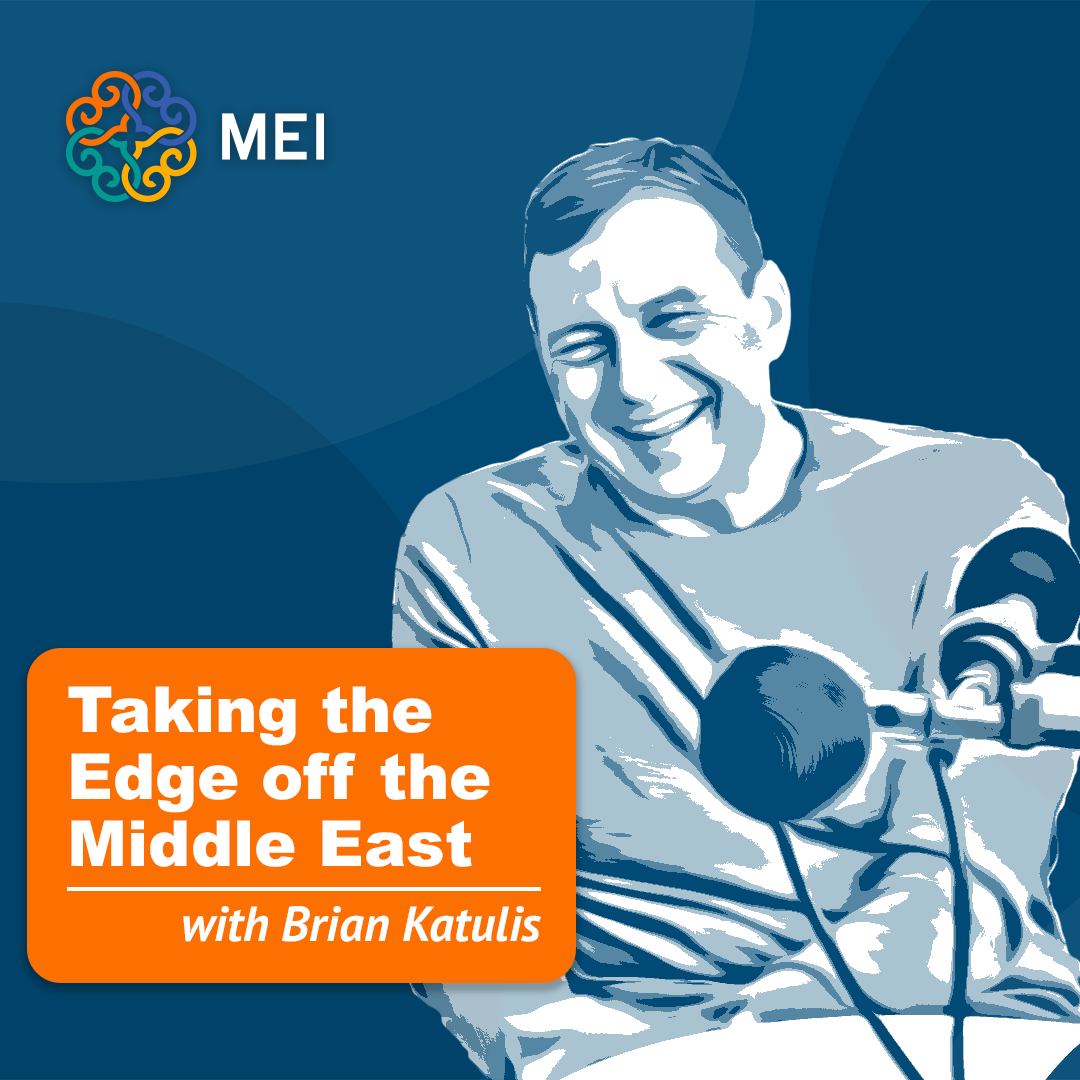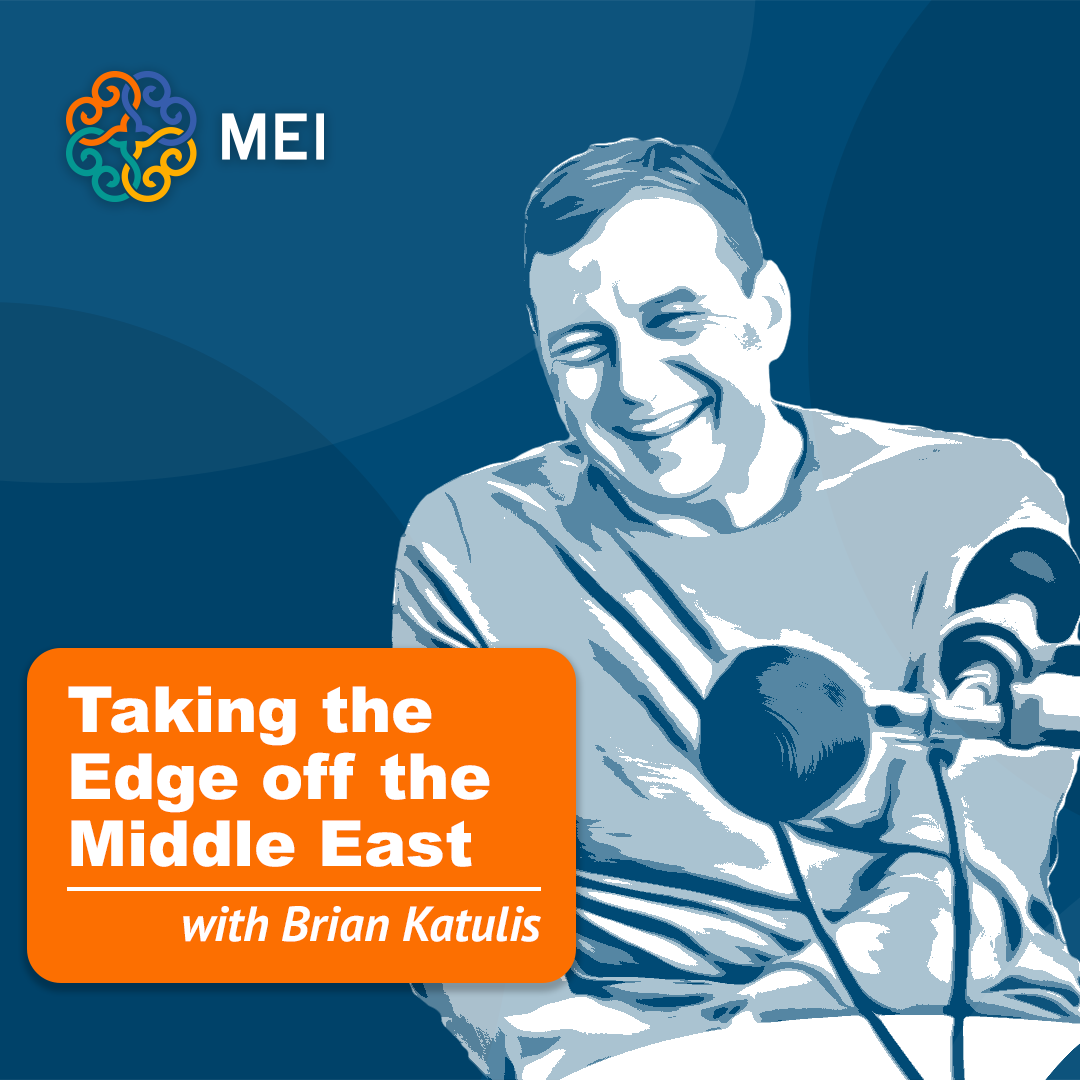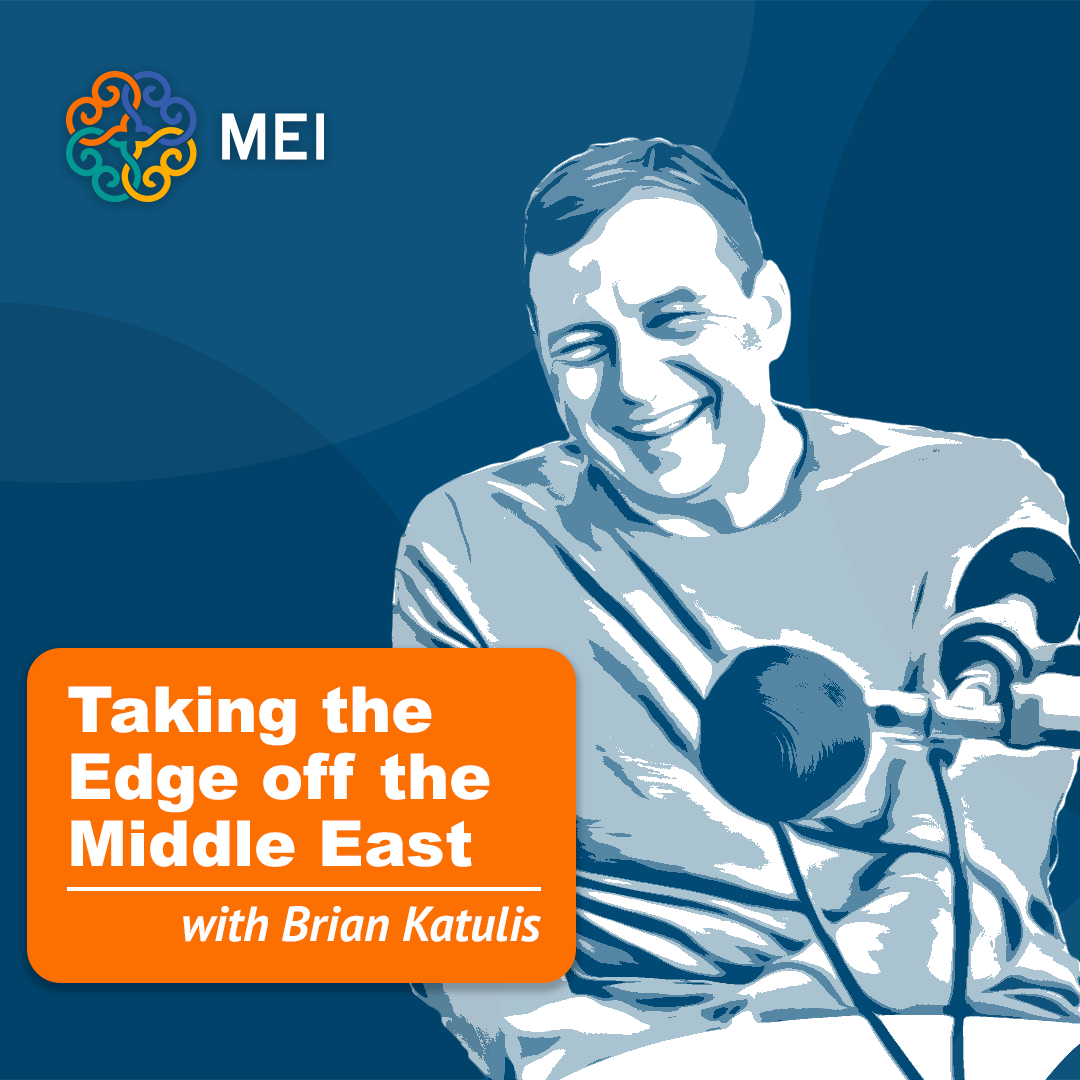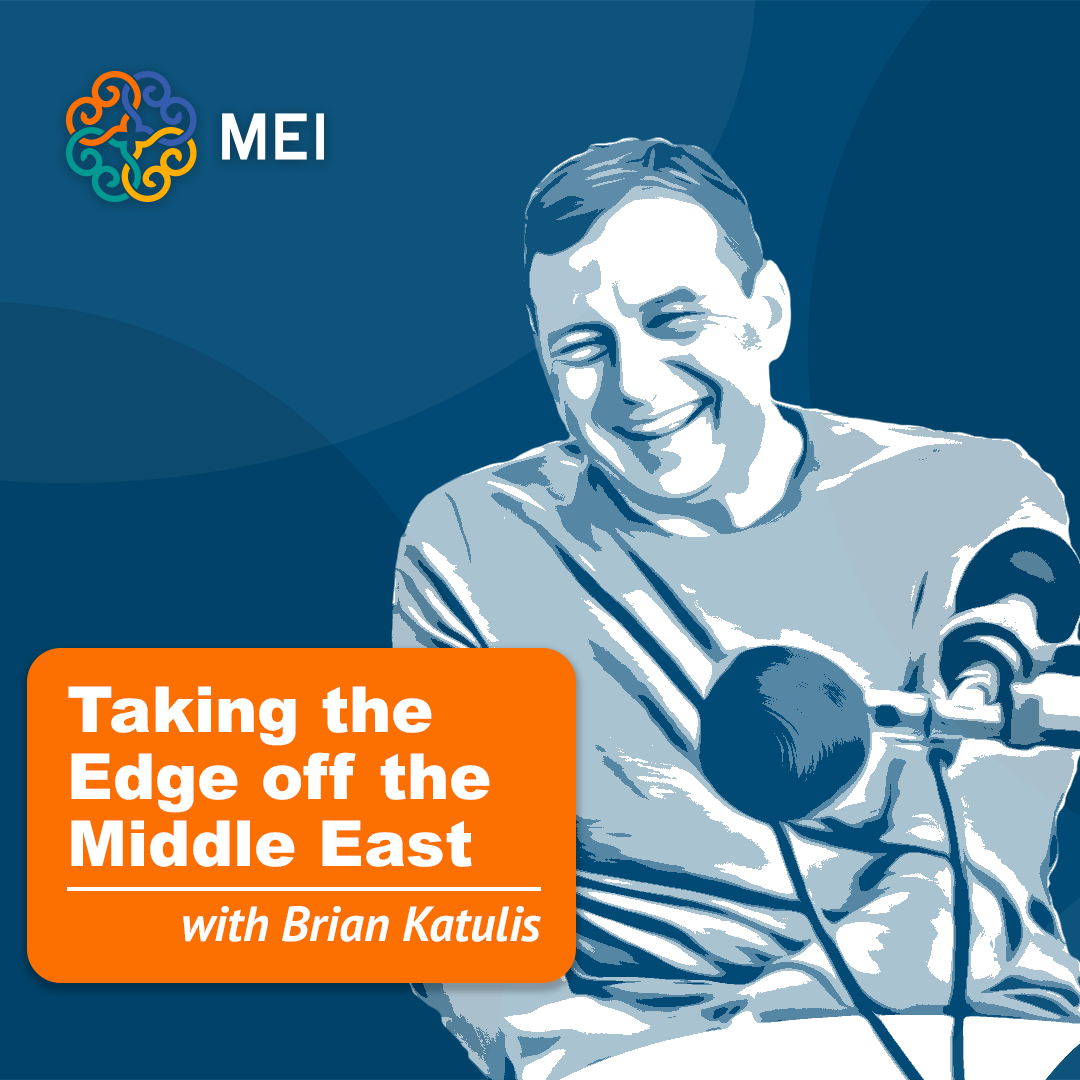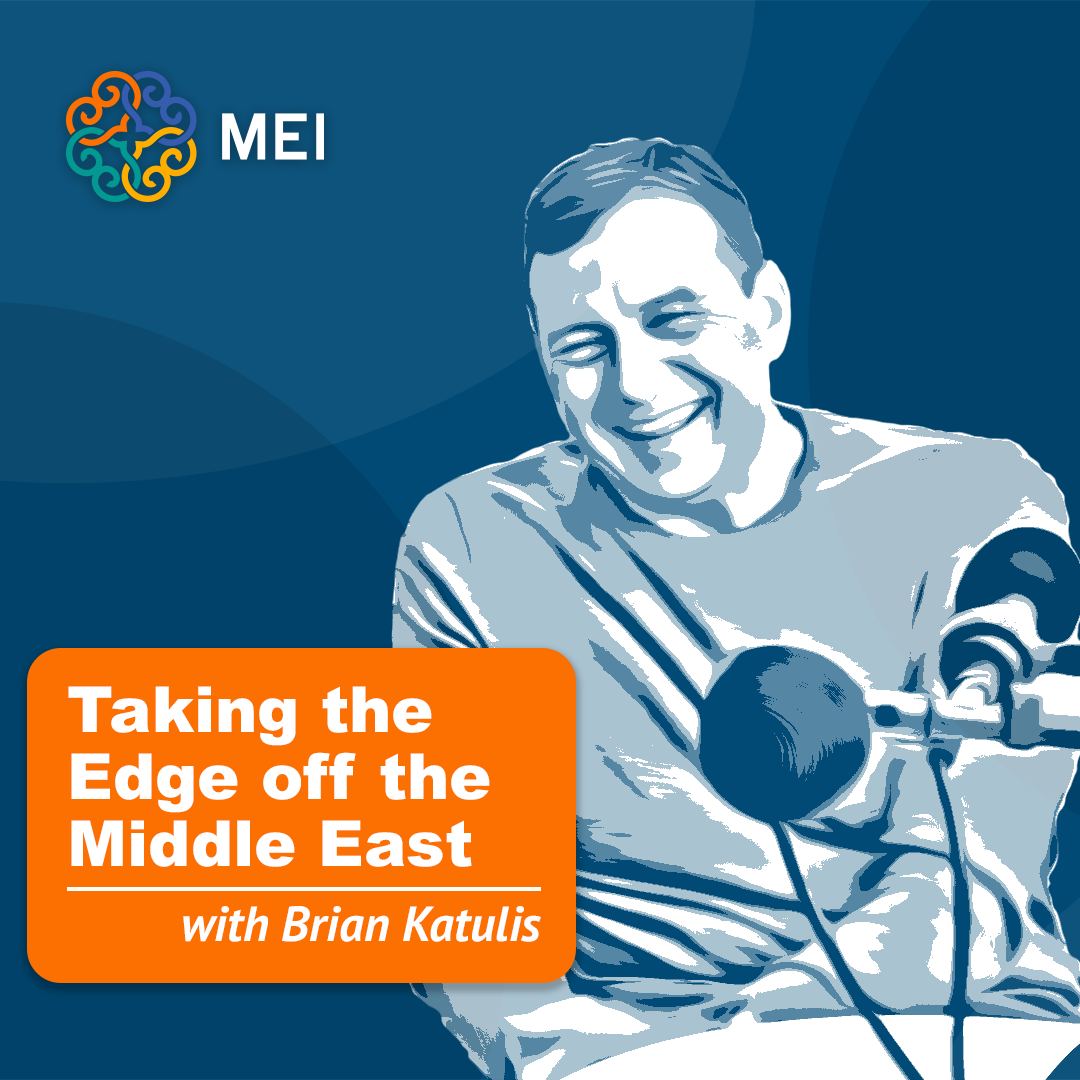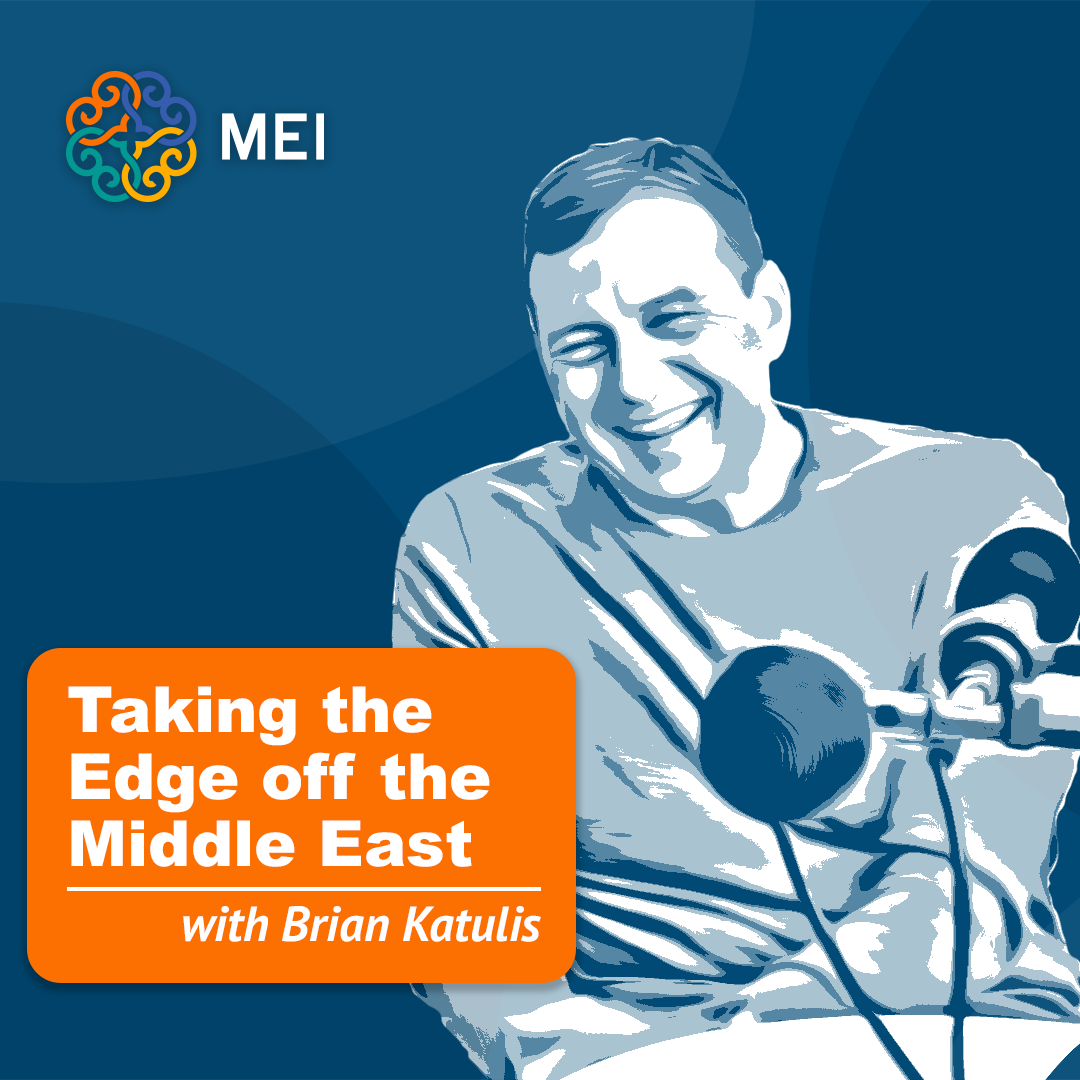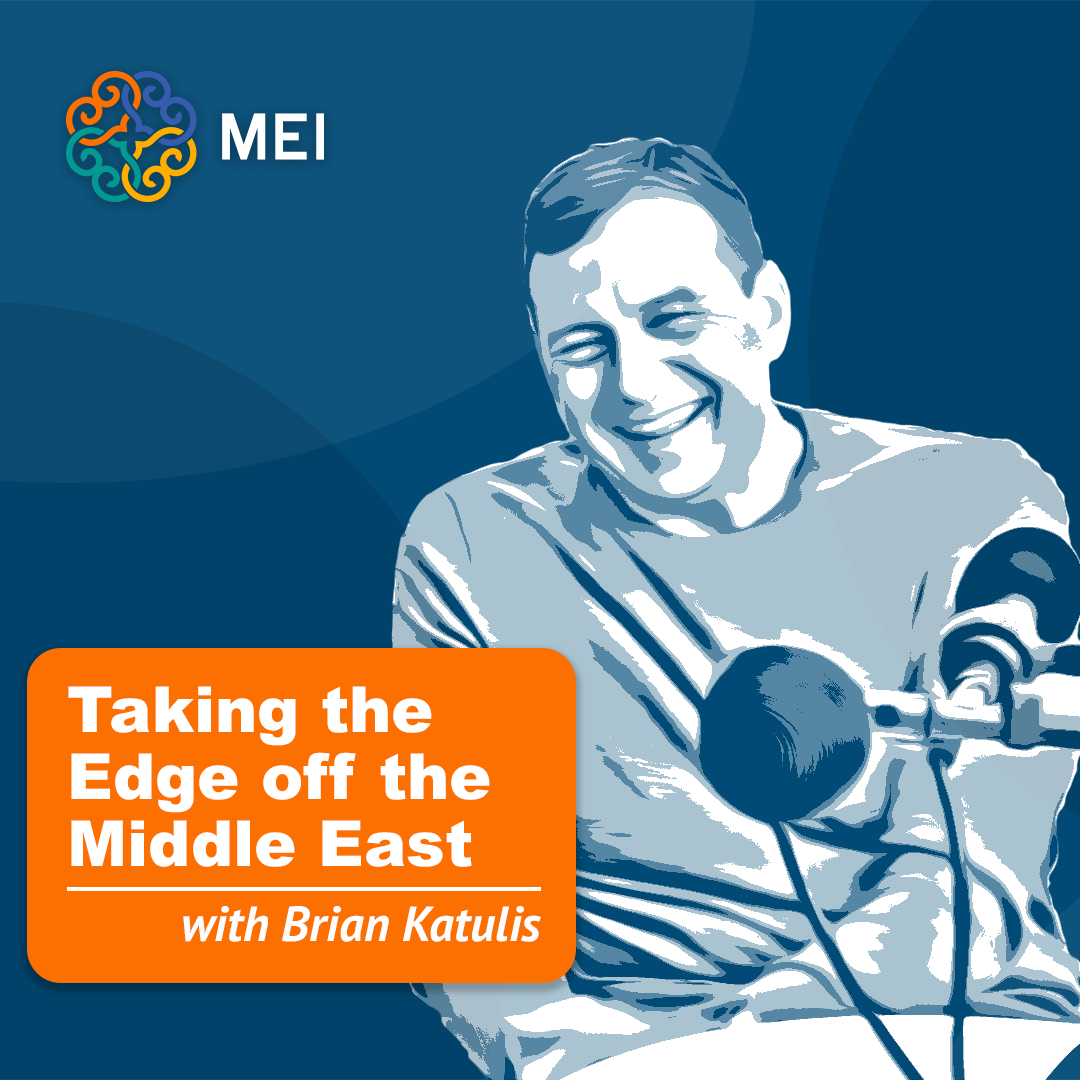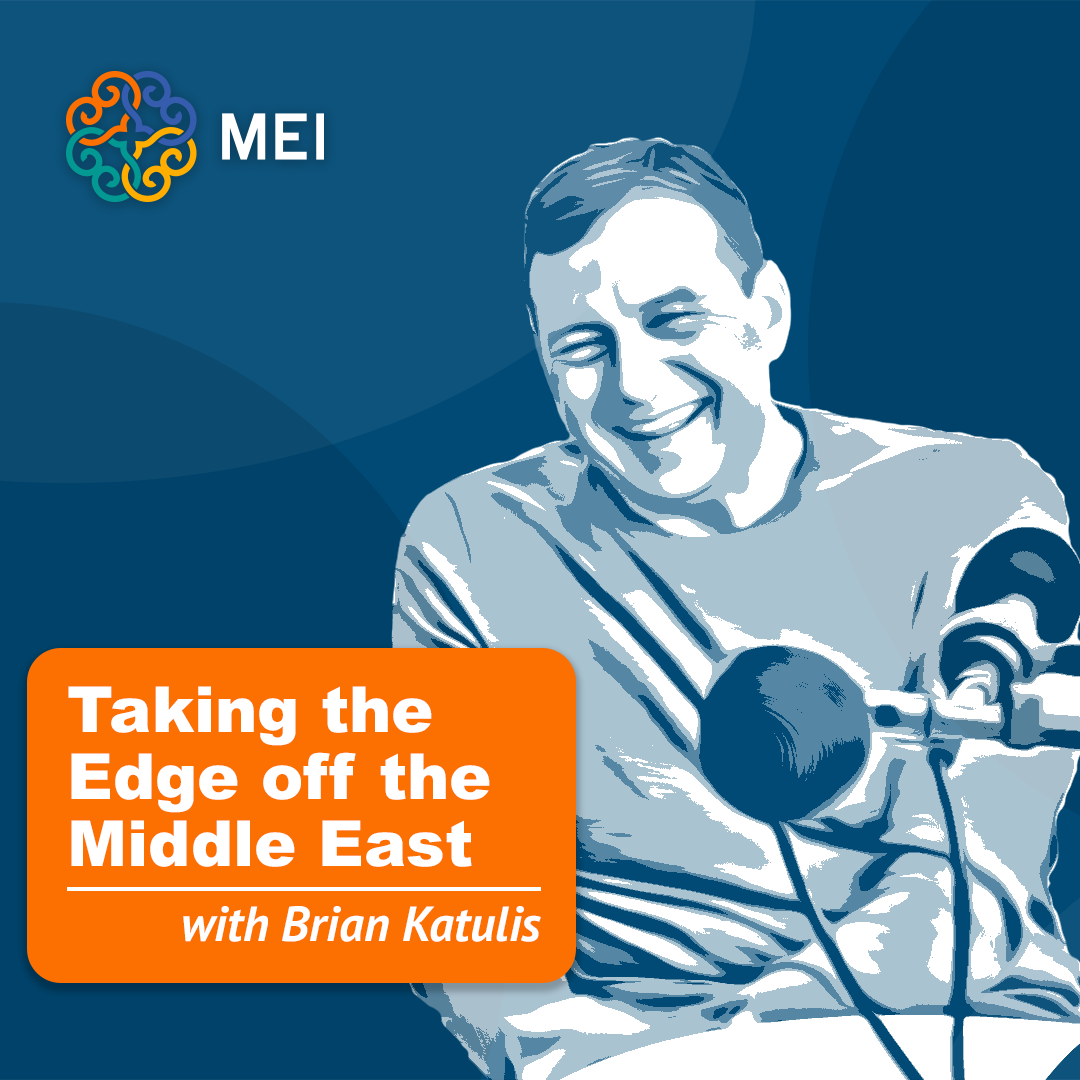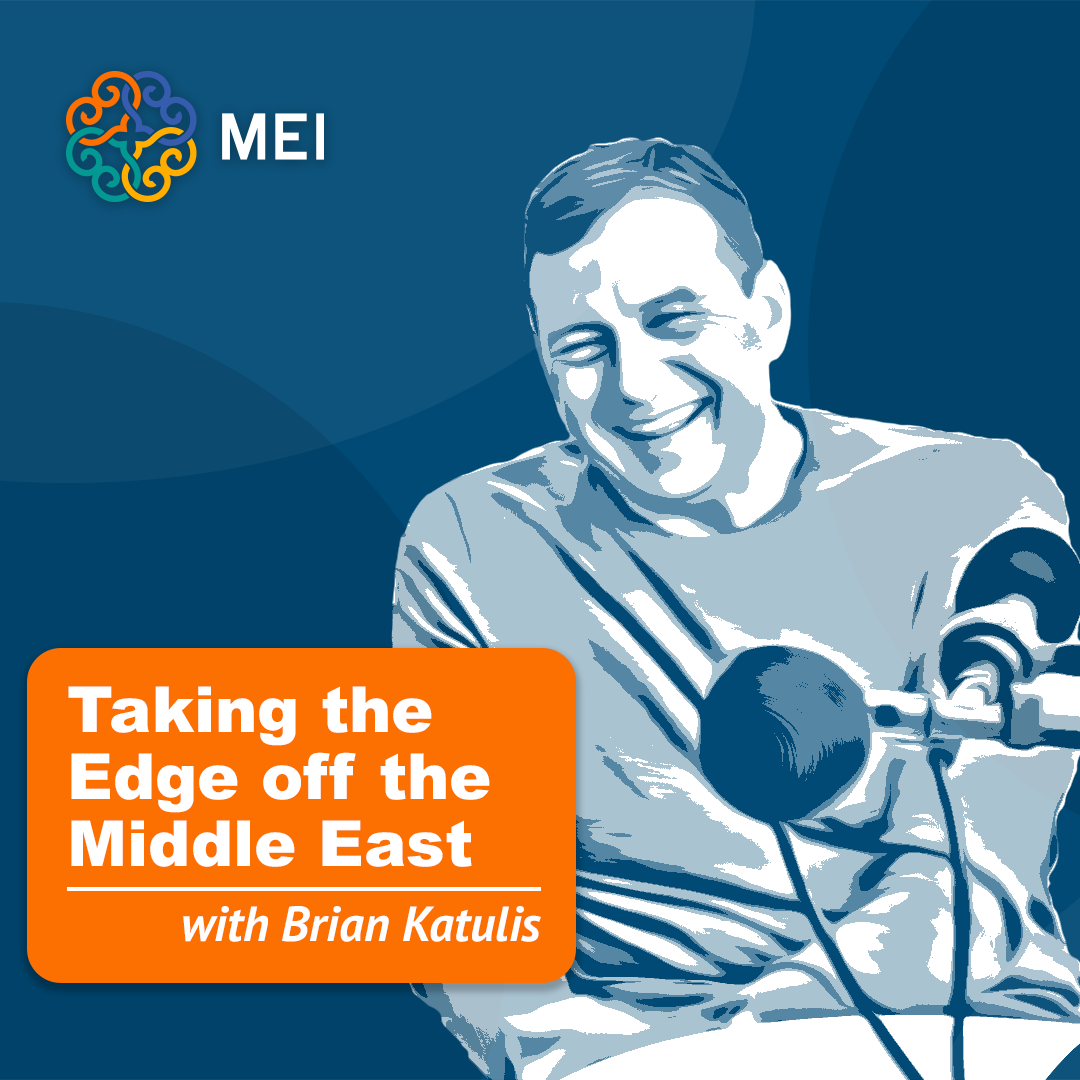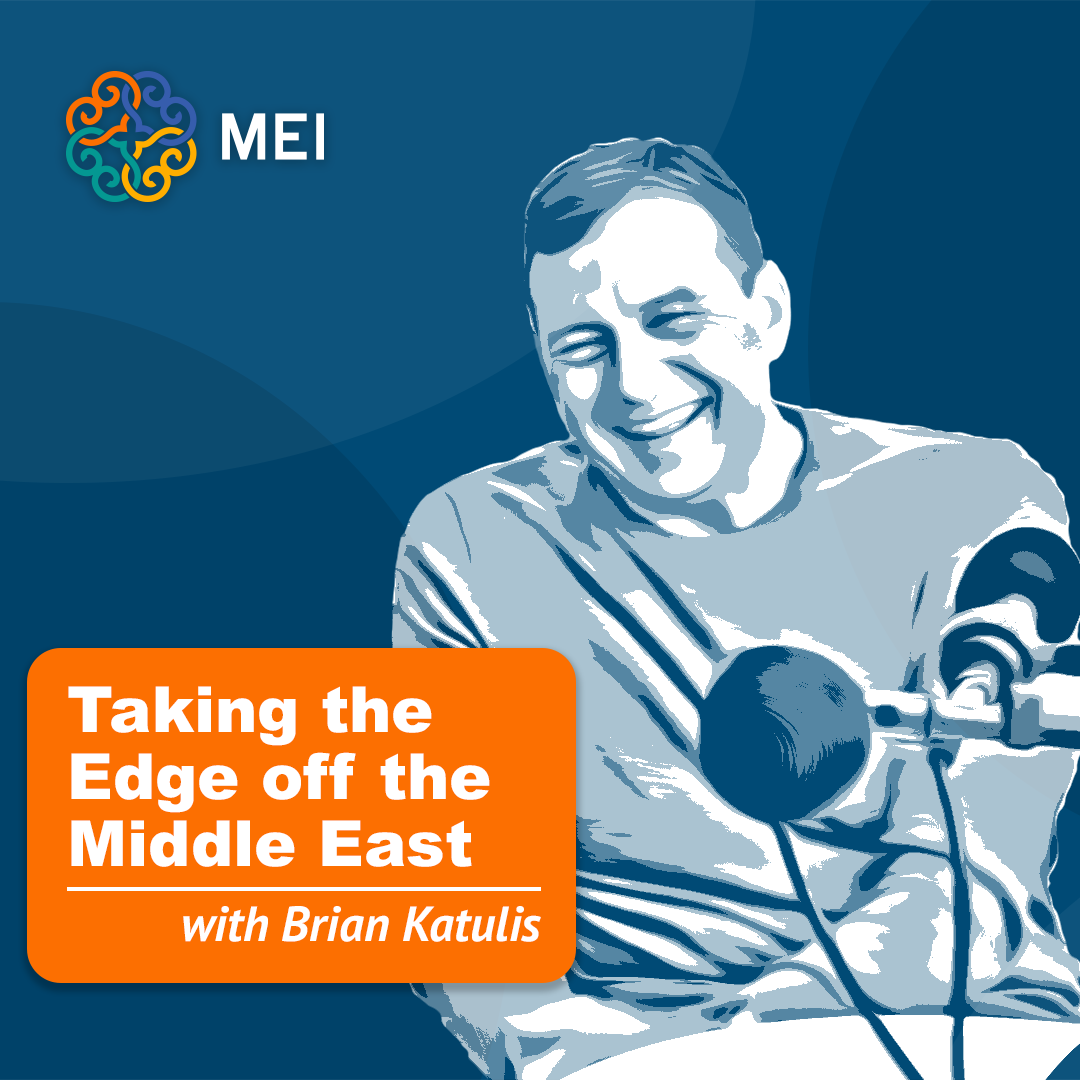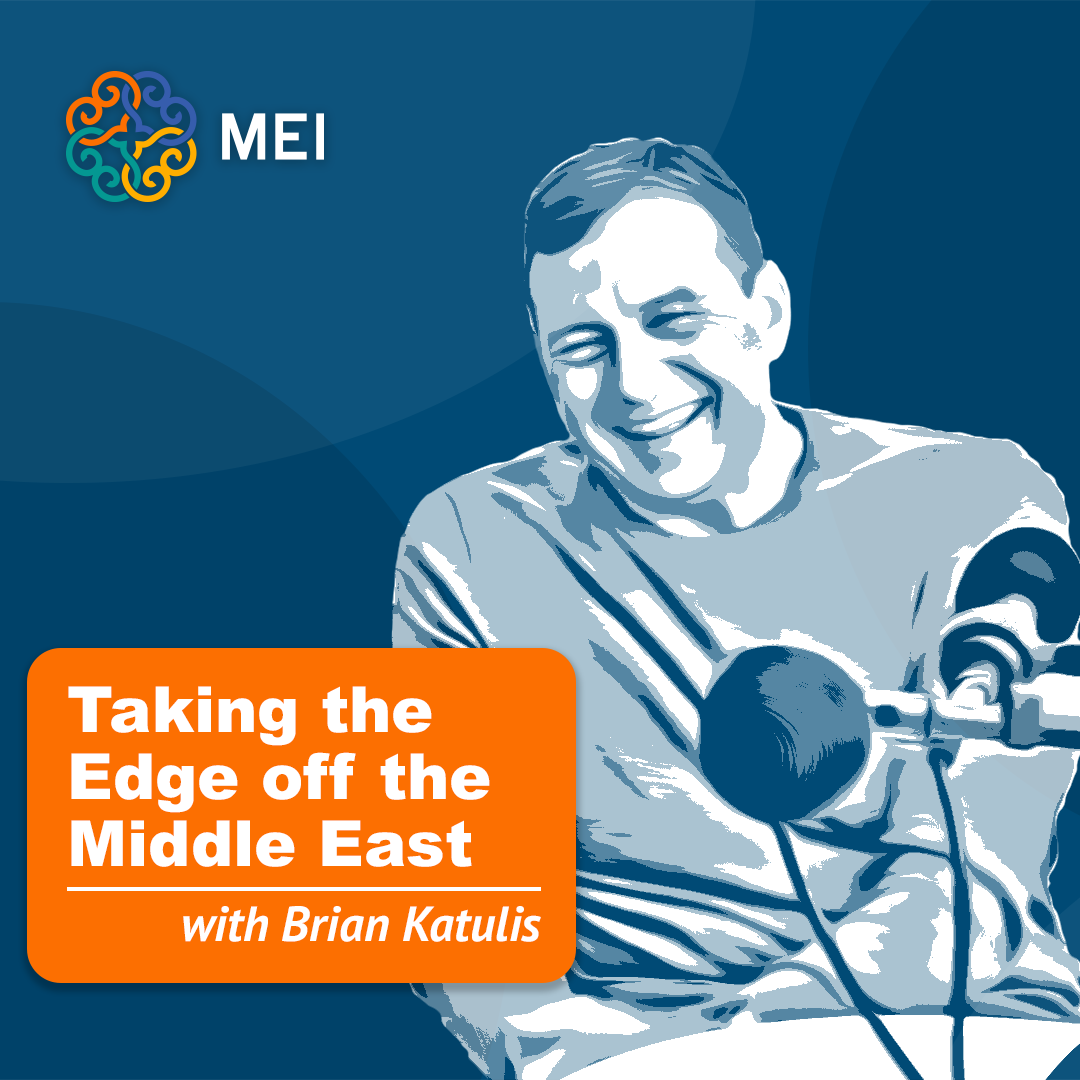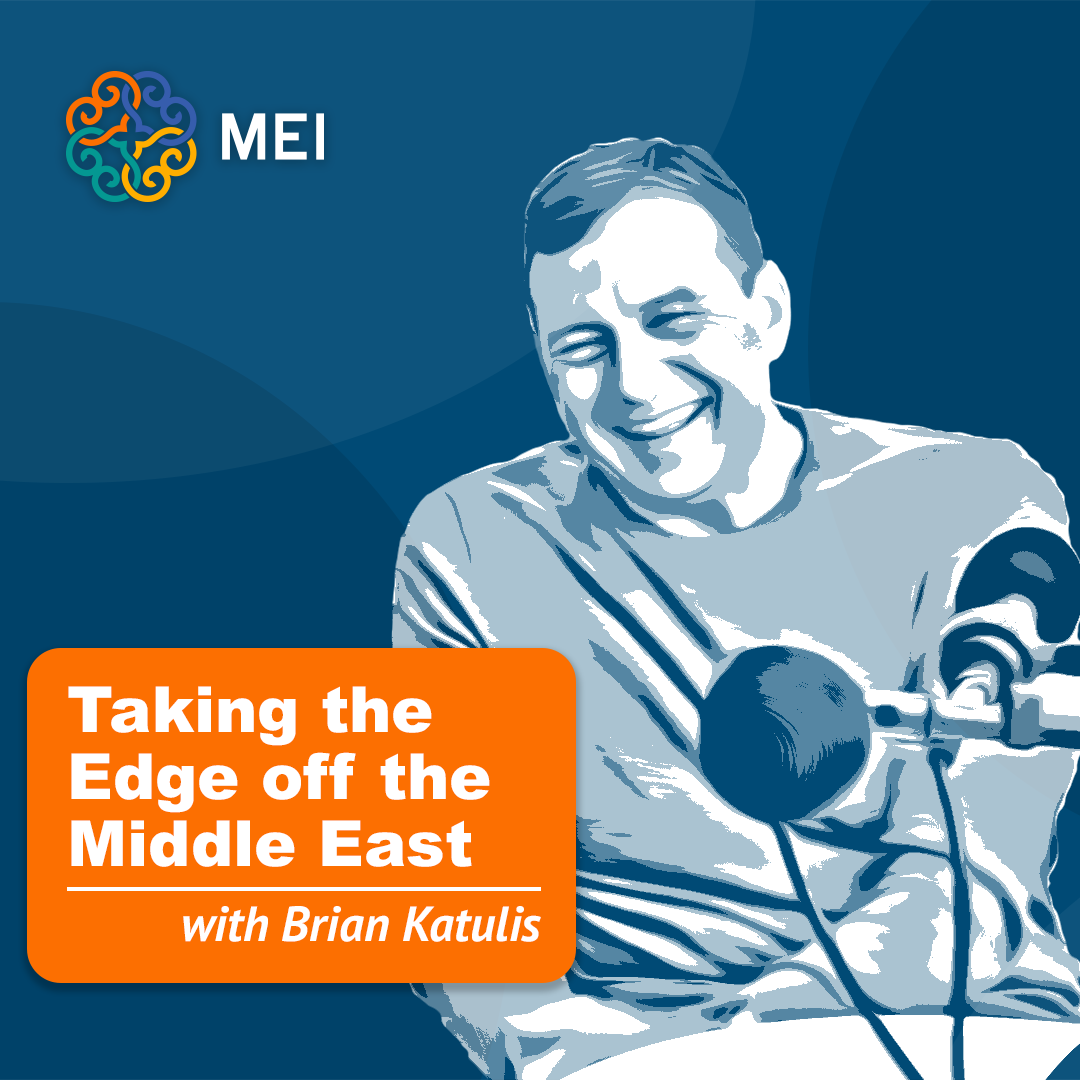Discover Taking the Edge Off the Middle East
Taking the Edge Off the Middle East

Taking the Edge Off the Middle East
Author: Middle East Institute
Subscribed: 22Played: 133Subscribe
Share
© 2025
Description
MEI’s Senior Fellow for US Foreign Policy Brian Katulis sits down with a cast of friends, colleagues, and fellow MENA policy professionals for casual conversations on the most important happenings in the Middle East today.
24 Episodes
Reverse
In this special bonus episode of Taking the Edge Off the Middle East, host Brian Katulis sits down with Dr. Majed Al-Ansari, adviser to the Prime Minister of Qatar and spokesman for Qatar's Ministry of Foreign Affairs. Dr. Al-Ansari offers insights into the small country's unique role in mediating conflicts worldwide. The conversation dives into Qatar’s complex relationships across the region and the world, including who asked Qatar to host Hamas, why Israel arranged for Qatar to deliver financial support to Gaza, its mediation efforts in the Gaza War, and the fallout from Israel's strike in Doha on September 9.
Former Assistant Secretary of Defense for Public Affairs and longtime Democratic National Security and Communications strategist Doug Wilson joins Brian for an expansive conversation about what’s at stake in US foreign policy at a time of global upheaval. Drawing on decades of experience in government, the private sector, and political campaigns, Wilson reflects on how Trump’s second term has upended America’s role in the world — from dealing with autocrats to the collapse of US credibility abroad. The two dig into the fallout of the Afghanistan withdrawal, shifting dynamics in the Middle East, the Gaza war and famine, Iran’s nuclear challenge, and why tools like public diplomacy and humanitarian aid - integral to developing trust — are now America’s most neglected tools. Along the way, Wilson shares candid insights from his time as national security advisor to presidential candidates from Gary Hart to Pete Buttigieg, lessons from the Pentagon, and why adapting US foreign policy to new frameworks will require fresh voices, bolder leadership, and a willingness to restore credibility to the values that resonate with Americans.
Ross Harrison and Mohsen Milani—two leading experts on Iranian strategy—join Brian for a conversation about the evolution of the Islamic Republic's foreign policy. Both draw on insights from their latest works: Harrison’s Decoding Iran’s Foreign Policy and Milani’s Iran’s Rise and Rivalry with the US in the Middle East. They unpack the fallout of the Twelve-Day War, the weakening of the "Axis of Resistance," and the lessons Tehran might take from Vietnam’s transformation. From shifting regional dynamics to mounting domestic pressures inside the Islamic Republic, the discussion asks whether Iran can reinvent its role or whether it remains stuck.
Rana Abtar—chief correspondent for Asharq Al-Awsat and anchor of the Washington Report—joins Brian for a conversation on US policy in the Middle East, Lebanon’s struggles and resilience, and what it means to cover Washington for Arab audiences. From Trump’s Syria policy to the 2020 Beirut explosion, from life on Capitol Hill to her family’s roots in Baalbek, Rana brings together the political and the personal, sharing a unique perspective that bridges policy, culture, and humanity.
Jeffrey Feltman—former Assistant Secretary of State for Near Eastern Affairs, US Ambassador to Lebanon, and UN Under-Secretary-General for Political Affairs—joins Brian for one of the most revealing conversations yet. They trace his journey from the streets of Beirut during the Cedar Revolution to a tense, hours-long meeting inside the office of Iran’s Supreme Leader Ayatollah Ali Khamenei. Along the way, they unpack the Trump administration’s impulse-driven gambits, the Biden team’s paralyzing over-process, and what’s lost when the US pulls back from daily diplomacy. It’s a rare, behind-the-scenes look at how power is wielded—and how trust is built or broken—in the Middle East.
Daniel Silverberg and Elisa Ewers—two veterans of Capitol Hill and the executive branch—join Brian for a candid conversation about the shifting politics of US Middle East policy inside the Democratic Party. Drawing on decades of experience shaping national security strategy, they unpack why so many debates remain trapped in a post-Iraq War mindset, how October 7th transformed bipartisan dynamics, and what’s at stake when values, strategy, and political reality collide. From Iran and Gaza to the role of Arab partners and the rise of populism, the trio explores how America’s approach to the region must evolve—and how the next generation can lead that charge with clarity, humility, and purpose.
Financial Times columnist and author Edward Luce joins Brian to discuss his new biography Zbig: The Life of Zbigniew Brzezinski—what the legendary strategist got right, where he fell short, and what his legacy means for US foreign policy today. From Camp David to Tehran, Luce reflects on the pivotal moments Brzezinski helped shape in the Middle East and beyond—and what lessons today’s leaders could take from his intellectual rigor and hard strategic choices.
Stephanie Williams, former US diplomat and deputy head of the UN mission in Libya, sits down with Brian Katulis for a wide-ranging conversation about what’s happening in the Middle East today. They talk through the latest on Israel and Iran and assess how a second Trump administration is already shaping US policy toward the region. Williams also shares how her decades of experience—and insights from her new book, Libya Since Qaddafi: Chaos and the Search for Peace—inform the way she sees today’s unfolding dynamics.
This episode was originally recorded on June 9, 2025, featuring a wide-ranging conversation with Eyal Hulata—Israel’s former National Security Advisor—about the dire humanitarian situation in Gaza, his role in shaping Israeli security policy, and where he believes the conflict is headed. In light of recent developments between Israel and Iran, we reconnected with Eyal to capture his latest analysis. The first segment of this episode was re-recorded on June 16, 2025, to reflect Eyal's current views and predictions regarding the unfolding regional developments.
Ambassador Dina Kawar, Jordan’s Ambassador to the United States, joins host Brian Katulis for a wide-ranging conversation on Jordan’s efforts to address the humanitarian crisis in Gaza, its bilateral partnership with the United States, and its role in regional diplomacy. Recorded May 29, 2025
In this episode of Taking the Edge Off the Middle East, host Brian Katulis sits down with Fahad Nazer, spokesperson for the Saudi Arabian Embassy in the US, to discuss the evolving US-Saudi relationship amid unprecedented regional volatility. Central to their conversation is the deepening crisis in Gaza, emphasizing the urgent need for sustained US-Saudi cooperation and broader international engagement to address the humanitarian catastrophe and prevent further regional escalation. The conversation also explores how bilateral ties are expanding beyond traditional energy partnerships into cutting-edge sectors like technology and AI, following President Donald Trump's recent Middle East trip and the major business deals it secured. Nazer provides insights into the kingdom's strategic positioning while highlighting growing people-to-people connections that are deepening the US-Saudi relationship — particularly through the influx of Saudi students in the US and increasing American tourism and cultural exchange in Saudi Arabia.
Ambassador Dennis Ross joins host Brian Katulis to break down what President Trump's recent trip through Saudi Arabia, the UAE, and Qatar revealed about the administration's approach to foreign policy in the Middle East—and what it means for the future of the region. They discuss the significance and substance behind the announced mega-deals, what’s really going on with Iran and the Houthi ceasefire, and how Trump is handling relations with Israel amid the ongoing war in Gaza. Amb. Ross also reflects on the art of diplomacy and his new book Statecraft 2.0: What America Needs to Lead in a Multipolar World (Oxford University Press, 2025), examining what effective statecraft looks like in a more constrained, multipolar world. From backchannel negotiations to strategic missteps in Libya and Syria, the conversation offers a rich look at how US foreign policy has evolved—and what it takes to get it right. Recorded May 16, 2025
In this wide-ranging conversation, Ambassador James Jeffrey joins host Brian Katulis to unpack the Trump administration’s early moves in its second term and what they signal for US foreign policy in the Middle East. From navigating alliances to confronting Iran’s influence, Jeffrey shares his take on the administration’s strategic posture and where it's getting things right—or going off course. The discussion covers key flashpoints including Syria, Yemen, and Gaza, as well as Trump’s upcoming trip to the region. Jeffrey also reflects on lessons from Iraq, the enduring legacy of US engagement in the Middle East, and what it takes to lead in times of global upheaval. Recorded May 1, 2025. Available on Apple Podcasts, Spotify, and wherever you get your podcasts. Editor's Note: In this episode, Ambassador Jeffrey makes several references to James Fallows’s 1975 essay, “What Did You Do in the Class War, Daddy?”. You can find that here.
In this episode of Taking the Edge off the Middle East, Brian Katulis sits down with Toni Verstandig, former Deputy Assistant Secretary of State for Near Eastern Affairs and current board member at the Middle East Institute. Three months into the second Trump administration, they assess how the White House is reshaping US policy in the Middle East—what’s changed, what’s stayed the same, and what risks lie ahead. Verstandig reflects on lessons from her years working on the Israeli-Palestinian peace process during the Clinton era, offering both poignant stories and policy insights from a time when diplomacy looked very different. They also discuss how think tanks like MEI are stepping up at a moment when institutions like USIP and the Wilson Center are under fire. Don’t forget to look out for new episodes of Taking the Edge off the Middle East every other Tuesday wherever you get your podcasts.
In this episode of 'Taking the Edge off the Middle East,' Brian Katulis sits down with Frank Lowenstein, a key advisor to Secretary John Kerry during the Obama administration. Lowenstein takes us behind the curtain of the Obama administration's intense peace negotiations between Israelis and Palestinians, from narrowly escaping a snowstorm in Ramallah to advising Secretary Kerry during critical moments. They discuss the Biden and Trump approaches to the region and explore how Middle East policy debates have evolved in American politics over three decades. Don’t forget to look out for new episodes of 'Taking the Edge off the Middle East' every other Tuesday wherever you get your podcasts.
In this episode, Brian is joined by former U.S. Ambassador to Israel Dan Shapiro, who recently served as Deputy Assistant Secretary of Defense for the Middle East. They discuss the Trump administration’s early approach to the region in its second term, including its handling of Iran, Gaza, and regional normalization efforts. Drawing on his decades of experience across the NSC, State Department, and Pentagon, Dan shares his candid assessments of what’s working, what’s not, and what’s still unsettled. He also reflects on his own career path and what young people interested in U.S. foreign policy can learn from decades of peacemaking efforts.
Ibrahim Dalalsha, founder and director of Horizon Center for Political Studies and Media Outreach, and Shira Efron, research director at the Israel Policy Forum, join host Brian Katulis to discuss policy developments in the devastating war between Israel and Hamas, and how Israelis and Palestinians can work together toward a peaceful resolution of conflict.
Barbara A. Leaf is a seasoned diplomat and expert on the Middle East, having served as the US Assistant Secretary of State for Near Eastern Affairs and held key positions in US embassies across the region. In this episode, Barbara joins Brian to discuss the array of “black swan” events currently unfolding in the Middle East, and how the second Trump administration may respond to these challenges. They discuss the broader implications of these developments for US foreign policy, national security, and regional stability.
Norman T. Roule is a member of MEI's Iran Program Advisory Council. Roule served for 34-years in the Central Intelligence Agency, where his service included roles as Division Chief and Chief of Station at the CIA’s Directorate of Operations. He joins Brian to discuss the state of an ideologically contested Middle East, as well as the opportunities and challenges following the fall of the Assad regime.
Steven A. Cook, Senior Fellow for Middle East and Africa Studies at the Council on Foreign Relations, sits down with Brian to discuss his latest book “The End of Ambition,” their policy outlook with the incoming Trump Administration, and deteriorating discourse in Washington policy circles.


